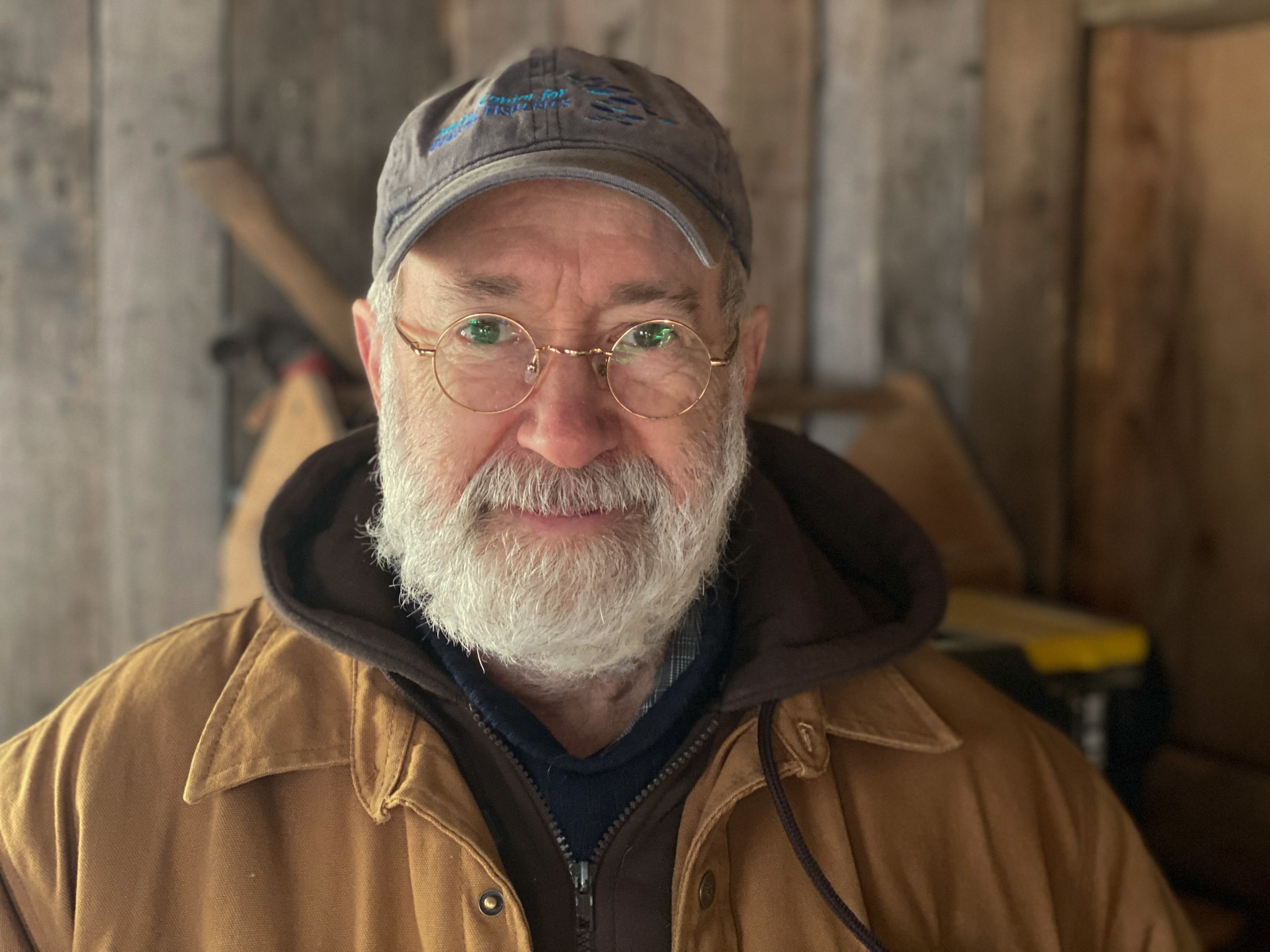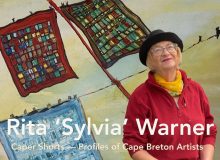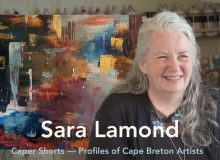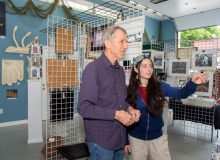Resources — Jacqueline Gerroir of the CDÉNÉ

A Q&A with Jacqueline Gerroir on her role in Isle Madame’s creative economy.
We talked to Jacqueline Gerroir to get a sense of what resources might be available for the creative economy, that is, those of us trying to make a living from their art or craft.
Jacqueline is—and it’s quite a mouthful—Agente de développement économique, employabilité et innovation – Isle Madame for Le Conseil de Développement Économique de la Nouvelle-Écosse. The CDÉNÉ office on Isle Madame is one of five in the province focused on driving economic development in Nova Scotia’s francophone regions. But the organization isn’t exclusively about the francophone community anymore.
Whenever you’re talking about resources in the Isle Madame area, Jacqueline’s name comes up. And if you want to get a sense of what shape the community is in, she’s one of the people you should talk to. Her office is in La Picasse.
Can you explain the purpose of Le Conseil de Développement Économique de la Nouvelle-Écosse?
Jacqueline: “We’re a francophone organization and I’m here because Isle Madame is recognized as one of the five official francophone regions of Nova Scotia. As such, this organization was started to increase the economic development within those areas because they were considered dying right? They were dying because they were related to the fishing industry and whatnot. So for years, it was very much doing projects of how to draw people to the area, how to make sure more people were employed, very much community-based, and very much francophone.
How has the role of your organization changed over the years?
Jacqueline: The federal and provincial governments have recognized that if these areas are going to remain viable then they need to be done in a very bilingual way. So I’m no longer limited to just working with francophone people. I’m working with people in the region that would promote economic development.”
What is the current state of the francophone language in the Isle Madame area?
Jacqueline: It’s probably 70-30 now. 30 is francophone.
That is surprising since you see so much evidence of the Acadian culture here.
Jacqueline: There’s a pride of culture but not a pride of language. A lot of people will not claim that they are francophone. They’ll say, ‘I understand the language but I don’t speak it’ and so they don’t consider themselves as francophone. I had that a lot when I was working at Telile. I’d say, ‘Come and talk to me in French,’ and they’d say, ‘No, my French is no good.’ And so tons of pride for the culture, not so much pride for the language.
But if you were talking about the culture rather than language what would the proportion be?
Jacqueline: 50-50. They’ll say I have Acadian roots. But the language is dying.
The Scrape is concerned with arts and crafts. Is there a lot of it in the Isle Madame area?
Jacqueline: We’re very rich in the arts in the region. And so I feel like it’s an opportunity to draw people here. This could be a place people come to see art, to make art.
How has the creative economy changed over the years?
Jacqueline: When I was a kid, there weren’t really farmers (and crafts) markets. There was the local bazaar at the churches. People would make things food-wise, or they would sell their crafts because it was something they did during the winter. It wasn’t showing off their work, per se, right? It was more of, ‘I’m going to support the church or the benefit by selling some of the stuff I already have made.’ Some crafters also sold their wares for pocket money to supplement an income or to fund their craft budget. This would have been part of a local, informal economy.
The modern farmers and crafts market changed that. And I think more and more people are really starting to focus on the value of what is here. So things that people made out of love or out of, you know, just gathering together to do something, now are valued as a form of art.
Is there a hungry, artistic younger generation here?
Jacqueline: There are a few hungry artists amongst the younger generation here with real passion and loads of talent, but I’m not sure they have a clear awareness of a path to a career in the arts.
Are the older people passing on their skills to the younger generation?
Jacqueline: There’s an attempt to do that now through the Picasse. The Picasse is doing lots of intergenerational projects where they’re trying to retain some of the old, especially the culinary arts and the fabric arts. Those are definitely things where they’re really creating intergenerational projects.
How keen are craftspeople around here to make a living at their craft?
Jacqueline: I tell people around here all the time, ‘If you were to sell your stuff somewhere else, you could get ten times for it what you get here.’ And I get zero interest. Zero. Because they’re not interested in it being the economic engine that you’re talking about. They’re like, ‘This is my pastime and this is what I want to do, and as long as it’s fun, I’m going to keep doing it.’
In my mind, at this point, we should be drawing tourists here, increasing the demand for art and then see if the supply increases with it. So the demand might have to come first before the supply happens.
What could do that?
One of the projects I’m working on is a festival for Isle Madame. A theme, or working title is, if you will, come and have a taste of Isle Madame. The whole idea is to have the 11 community halls working collaboratively to celebrate and share local culture and food that are on this island.
How will that support art in general?
When I said, ‘What have we got for entertainment?’ the conversation was all around music. Because that’s how it’s traditionally seen. And I said, ‘Well, are there other artists that we could be celebrating? Or are there other types of artists?’ And then the conversation veered into painters. It veered into painting as art. And it was almost like you could see this evolution of the conversation where people were like, ‘Oh, well knitting is art.’ ‘Well, quilting is art.’ And somebody said, ‘So is woodworking.’ And then they started naming artists that expressed themselves through multiple mediums. And it was really interesting to watch that conversation happen.
What role does signage and marketing play in your strategy for regional promotion?
Jacqueline: I love the sign when you cross the bridge and it says Explorers Island because you really need to have the heart of an explorer to really stick around. But there should be a similar sign on the highway that says: Welcome, here’s what we have available.
What advice would you give to someone looking to start a project that promotes arts and culture in the Isle Madame area?
Jacqueline: “Well, the more developed your project is in your mind, if you can get that down on paper: What are your goals? What are your dreams? What would you like to see happen? then we can start working together, putting the pieces together, right?”
What is the key to getting support for a project or idea?
Jacqueline: Talk to people in person. People really love that human touch, that element of engagement.

Author details
Archie Nadon, writer and photographer, left Ontario in 76 dreaming of living by the sea. In 2021 it finally happened.






